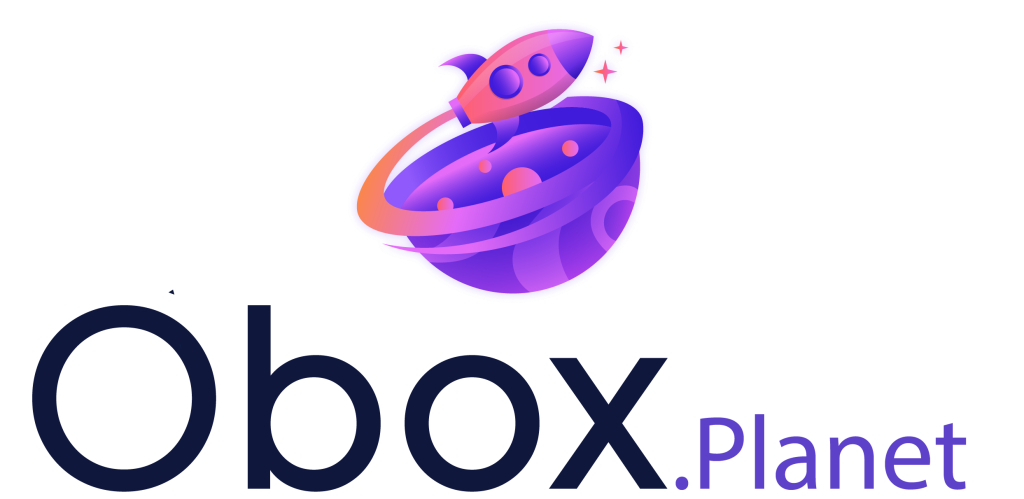Lab b1: Learning, Education and Diplomas
Learning, Education and Diplomas
Learning, education, and proficiency titles
It’s 1850. People arrive at work using horses and carriages. Oil lamps are used to keep the lights on, and children trot from their homes to school every morning. Their teacher stands in front of their classroom, lecturing on some topic out of a book, while all children are treated equally no matter their learning type.
It’s 2023. School still looks pretty much the same on earth as it has back in 1850. One reason is that the states took over and there is little pressure to change when schools have no competition. In the last decades, costs have skyrocketed while performance declined.
Not so on OboxPlanet. Here, we don’t have public schools. All schools are privatized.
We know. It sounds so elitist. Bear with us.
On the OboxPlanet, with increasing wealth, changes in technology, and developments in the workforce, the goal of educating children has been challenged fundamentally. This led to a complete re-structuring of the educational system. Two primary questions have emerged: what programs are best suited to a changing world and how can we offer the most to our children?
Regarding the childrens’ individual needs, two things are accepted by just about everybody: Number one, kids do best where they have talents, and number two, kids learn best when they can do it according to their learning style: Visual, Auditory, Read/Write, or Kinesthetic. These factors are evaluated in elaborate tests to give parents and kids additional help in choosing the right type of career.
The typical school day looks a lot different here. New technologies are incorporated alongside innovative learning programs and facilities. The roles of teachers have also expanded, and new approaches have been implemented as well. Older children sometimes take on the role of teaching their younger counterparts as part of building their leadership skills. Senior citizens have also been incorporated into the working world, with many of them helping with childcare. They also play an important role in basic history and life experience courses.
But what happens after you leave school?
On earth, there are state-issued professional licenses. On OboxPlanet… You guessed it. No state-issued anythings without a state! So how does it work? How do doctors get their licenses? Pilots? Taxi drivers?
Parents pay for what they choose. Therefore, they also want to see results, testable results. These results need to bagenciese trustworthy, which is why proficiency tests and diplomas are offered by specialized test. Competition among these companies keep them efficient and honest.
Many places want to see proof of proficiency before they let you use their equipment or facilities. Makes sense, right? You wouldn’t lend your car to a guy that can’t drive, right? Private roads require driving certificates, some communities want residents with gun handling certificates. Insurance companies only issue coverage for airline companies if their pilots are certified. Many requirements are in fact driven and controlled by insurance companies. After all, it is they who will have to pay for the damages of malpractice or equipment handling accidents.

On OboxPlanet there are no public schools, there is no mandatory schooling, there are no state diplomas and no state licenses or license requirement. Education is understood to help kids in all respects of life. It is flexible, innovative, integrated in the work world and has very little in common with our idea of schools.
Let’s say that on our earth, 95 out of 100 parents want the best for their kids. This is of course the same on our planet, except that the percentage is even higher because parents who don’t love their kids can more easily give them up for adoption.
Back in 1850, kids trotted to school in the morning, listened to the teacher teach them what was in his books and in the evening trotted back to the farm or the factory towns. People used horses for travel and outhouses as toilets. Today, we use cars and planes and airconditioned bathrooms. But the schools on earth still basically look and function the same way as back in 1850. The costs per pupil have risen manyfold, the teaching results not in the same degree. The comparison to private schools today can let us get a glimpse of what could have been possible. Today, on earth, their costs are about half as much per pupil and they regularly outperform the state schools.
On OboxPlanet, with increasing wealth and with the changes in the workplace, the goal of educating kids was challenged fundamentally. Two questions have evolved: what programs are best suited to a changing world and how can we offer the most to the different types of kids and students?
Regarding the changing needs of people and the workplace, OboxPlanet has educational programs that emphasize liberal arts, languages, entrepreneurial skills, modern technologies, health and fitness, financial life planning, spiritual and mental health, and combinations thereof. Parents choose differently according to their beliefs and experiences and their perceived skills and needs of their kids.
Regarding the kids’ individual needs, two things are accepted by just about everybody: Firstly, kids do best where they have talents and secondly, kids learn best when they can do it according to their learning style: Visual, Auditory, Read/Write, or Kinesthetic. These factors are evaluated in elaborate tests to give parents and kids additional help in choosing the right type of career.
Classic school rooms and frontal instructions have just about disappeared. The day may start with an online presentation, transmitted worldwide by one of the top speakers in the field. This is followed by discussions lead by a teacher or by senior students. There are interactive online courses for new technologies and assisted study groups for liberal arts topics. Other subjects have their own learning centers, in cooperation with other schools. There are museum-like facilities for studying basic physics, chemistry and biology, multimedia language learning centers and whatever you can imagine would be helpful for learning.
The classic teacher role has been expanded in many ways. Some schools have revived a tradition from the times of the American colonies where older kids take responsibility for teaching youngers, thereby practicing, leadership and being a role model. On the other end of the age structure and with increasing life expectancy, the integration of seniors has permeated all levels of schooling. Senior citizens help in toddler daycare centers and play an important role in basic history and life experience courses. For specialists it is common practice to keep sharing their experiences way into old age.
Diplomas and certificates of proficiency play a great role on OboxPlanet.
Because parents pay for what they choose, they want to see results, testable results. And because these results need to be trustworthy, proficiency tests and diplomas are offered by specialized test agencies. Competition among these companies keep them efficient and honest.
On OboxPlanet, there are three dominating agencies which certify basic skills in math, reading and other fields. Besides, there are countess organizations and firms who certify special skills. Some certify intellectual and business proficiencies, others test manual skills like driving a car, piloting, or handling a firearm.
On our earth, we have state licenses, on OboxPlanet, they have privately issued certificates and diplomas. Many places want to see proof of proficiency before they let you use their equipment or facilities. Private roads require driving certificates, some communities want residents with gun handling certificates. Insurance companies only issue coverage for airline companies if their pilots are certified. Many requirements are in fact driven and controlled by insurance companies. After all, it is they who will have to pay for the damages of malpractice or equipment handling accidents. Competition leads to regulations which make sense, not too much and not too little. One consequence is that many proficiency certificate have expiration dates, including those of medical doctors.
On OboxPlanet, everybody can afford some type of education. The costs for all levels are a fraction of what we are used to and for the few families who have trouble financing even a basic education, there are many charities. For higher education the choice is simple: if students expect that it is worth more than it costs, they can apply for a private or a bank loan.
All in all, learning is much more flexible, time and money efficient and lasts, as a matter of course, throughout life.

What is it about today’s school system that so many find unsatisfactory? Why have generations of reformers failed to improve the educational system, and, indeed, caused it to degenerate further and further into an ever declining level of mediocrity?
Murray Rothbard can give us an scholarly, entertaining and informative introduction to the topic in a relatively short monograph, “Education: Free and Compulsory. The PDF is Free on mises.org
https://mises.org/library/education-free-and-compulsory-1
Rothbard’s analysis: at every level, from financing to attendance, the system relies on compulsion instead of voluntary consent. Certain consequences follow. The curriculum is politicized to reflect the ideological priorities of the regime in power. Standards are continually dumbed-down to accommodate the least common denominator. The brightest children are not permitted to achieve their potential, the special needs of individual children are neglected, and the mid-level learners become little more than cogs in a machine. The teachers themselves are hamstrung by a political apparatus that watches their every move.
Rothbard explores the history of compulsory schooling to show that none of this is accident. The state has long used compulsory schooling—backed by egalitarian ideology—as a means of citizen control. In contrast, a market-based system of schools would adhere to a purely voluntary ethic, financed with private funds, and administered entirely by private enterprise.
An interesting feature of this book is its promotion of individual—or home—schooling, long before the current popularity of the practice.
A second recommendation is “The Beautiful Tree” by James Tooley.
It is a heartwarming account of how families in the poorest slums of Hyderabad, Delhi, and other places strive to provide education for their children. It showcases the dedication of teachers in low-cost private schools who deliver better results compared to state-run institutions that are significantly more expensive. These schools charge a few dollars per semester, yet they face challenges from regulations they cannot meet and the necessity of paying bribes.
This book serves as an illustration of the ambitions, energy, and goodwill that exist worldwide to find private and voluntary solutions. It also sheds light on the counterproductive role played by the state, despite its good intentions, and highlights the lack of awareness and concern from international institutions like the United Nations. These global organizations focus on top-down plans and funding, while disregarding the existence and impact of these grassroots private schools.
Education is too important a task to leave it to politicians, the teachers union and the state…

Now it’s your turn:
What skill would you like to have or have learned earlier?
Steps we can take in our world:
Abolish mandatory schooling laws, abolish all restrictions on schools, privatize all childcare, kinder garden, k-12 and higher education facilities, abolish all state diploma requirements for practicing certain professions.
Illustrations:
John Stossel, the School Choice Fight
https://youtu.be/FfigsiTrz5s?list=PLFtZbRNUjWfwd3LtGvS0sL6JmsJ8Jpvum

